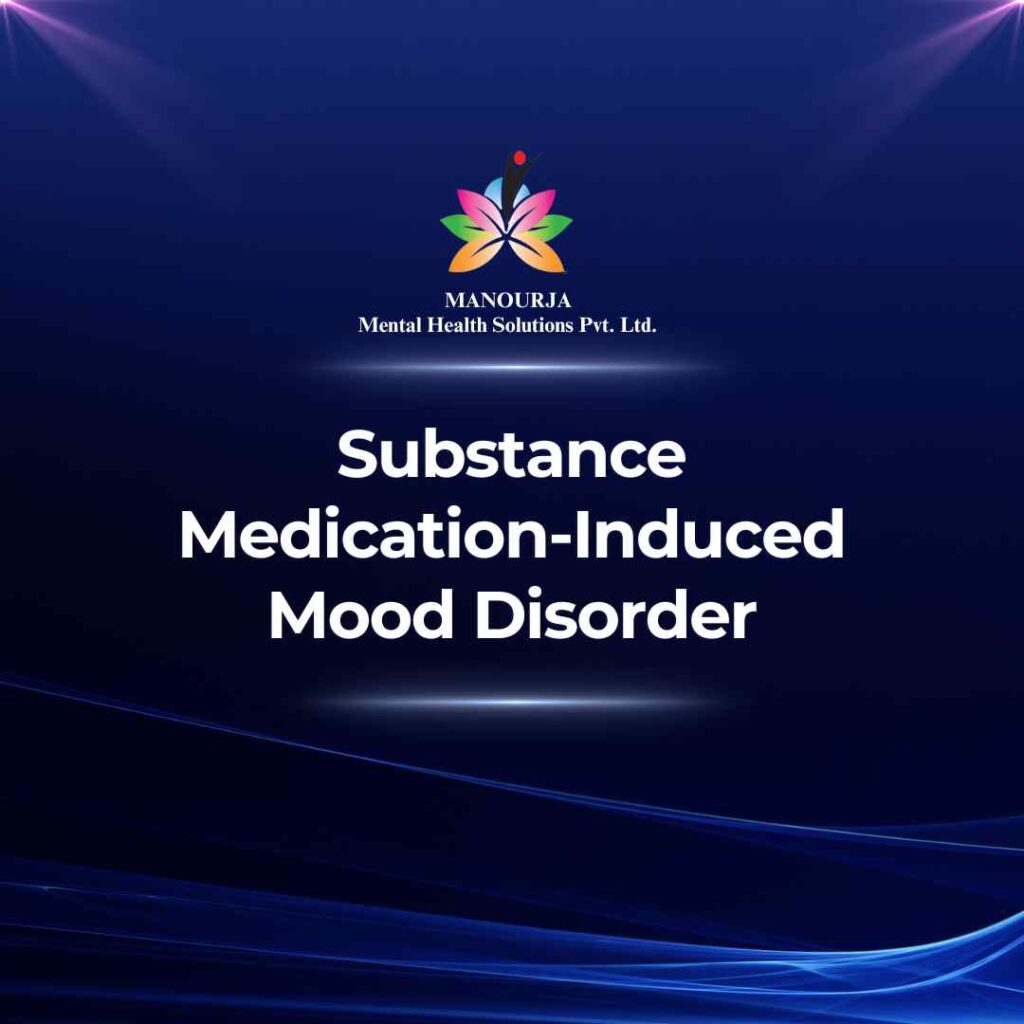Substance/Medication-Induced Mood Disorder

Substance/Medication-Induced Mood Disorder is a mood disorder that is directly caused by the effects of drugs (including recreational drugs), alcohol, medications, or toxin exposure. It is distinct from other mood disorders in that the mood disturbance is considered a direct physiological consequence of a chemical substance.
Meaning
The disorder is characterized by significant and disruptive mood changes that result from substance use, intoxication, withdrawal from substances, or exposure to medications or toxins. These mood changes are sufficiently severe to impair social or occupational functioning and are not better explained by another mental disorder.
Characteristics
The symptoms associated with Substance/Medication-Induced Mood Disorder can vary depending on the substance involved but typically include:
- Depressed mood: Feelings of sadness, emptiness, or hopelessness that are significantly greater than the typical reaction to intoxication or withdrawal from the substance.
- Elevated mood: In some cases, individuals may experience unusually elevated, expansive, or irritable moods.
- Rapid mood swings: Fluctuations between depression and elevation can occur, particularly if the substance has a complex effect on the brain’s neurochemistry.
- Additional symptoms might include fatigue, changes in sleep patterns, agitation, or reduced ability to think or concentrate.
Forms
Substance/Medication-Induced Mood Disorder can manifest in two primary forms:
- With depressive features: This is more common and involves primarily depressive symptoms, such as persistent sadness, lack of interest in activities, and possible suicidal ideation.
- With manic features: This form involves elevated, expansive, or irritable moods, increased activity or energy, and other symptoms typical of a manic episode.
Treatment
The treatment of Substance/Medication-Induced Mood Disorder focuses primarily on addressing the substance use or exposure:
- Discontinuation of the substance: The first step in treatment is typically to discontinue use of the substance that is causing the mood disturbances, under medical supervision if necessary to manage withdrawal symptoms safely.
- Detoxification and withdrawal management: Medically supervised detoxification may be necessary, particularly for substances that cause severe or medically complicated withdrawal syndromes.
- Medication management: If symptoms persist after the removal of the substance, medications such as antidepressants or mood stabilizers may be used. It’s important to carefully manage these medications, as individuals with substance use histories may be more vulnerable to side effects or dependence.
- Psychotherapy: Counseling and therapy can help individuals understand the impact of substances on their mood, develop strategies to avoid substance use, and address any underlying mental health issues or stressors that may contribute to substance use.
- Support groups and rehabilitation programs: Participation in support groups like Alcoholics Anonymous (AA) or Narcotics Anonymous (NA) can provide peer support and encouragement, which are crucial for recovery. Inpatient or outpatient rehabilitation programs may also be recommended depending on the severity of the substance use disorder.
It’s important to differentiate Substance/Medication-Induced Mood Disorder from other mood disorders that may coexist with substance use. A comprehensive evaluation, often including a period of abstinence, may be necessary to clarify the diagnosis and ensure appropriate treatment.
At MANOURJA, we believe in the transformative power of counseling. Our experienced therapists offer a safe and supportive space where you can explore your thoughts, emotions, and challenges. Through personalized counselling sessions, we’ll work together to develop coping strategies, build resilience, and achieve lasting positive change. Discover the path to a healthier, happier you with MANOURJA counselling services.
MANOURJA Rehabilitation Services
At MANOURJA, we’re dedicated to helping you in rebuild your life, after difficult times. Our rehabilitation services focus on understanding what you need to move forward, whether you’re recovering from addiction, trauma, or any psychological – social challenges. We create personalized plans, that are all about helping you, regain your strength and find hope again. With a caring team by your side, you’ll have the support to make real progress and take steps toward a brighter, healthier future.
